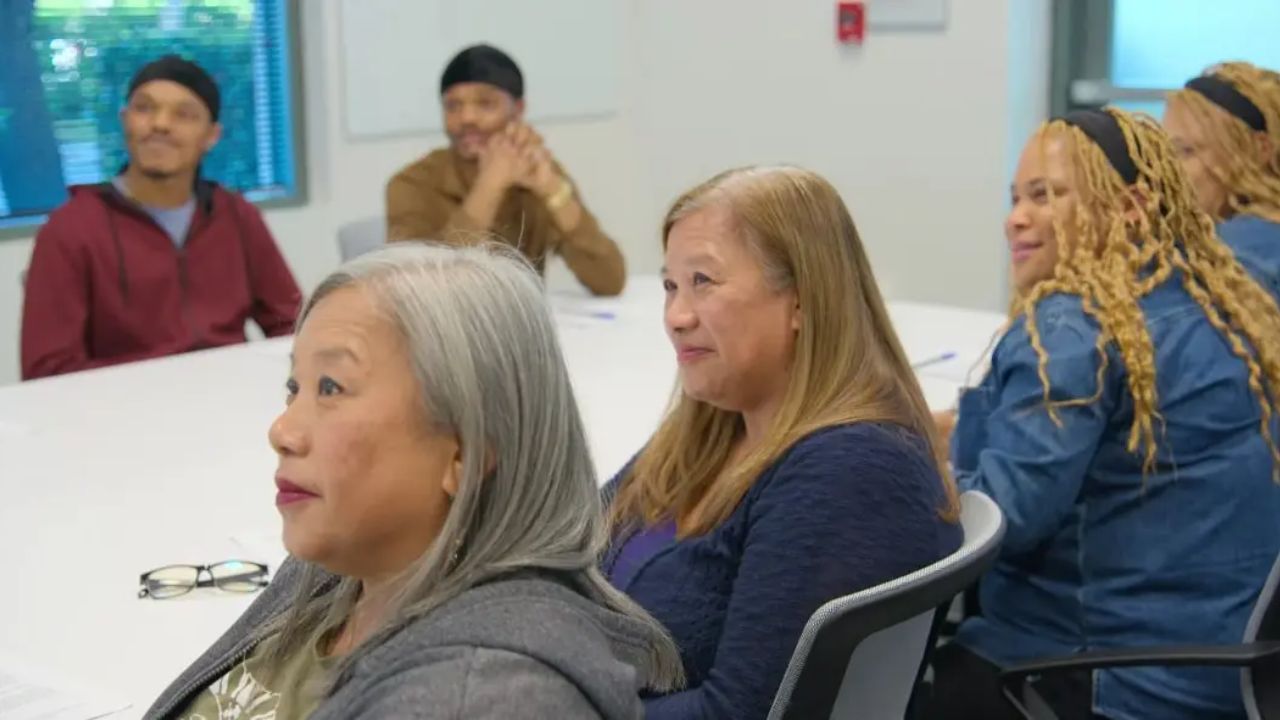blurred-reality.com – Since many Reddit users have been inquiring, we’ve brought you the results of the 4 twins who participated in You Are What You Eat: A Twin Experiment.
Director Louie Psihoyos hopes that his new docuseries, You Are What You Eat: A Twin Experiment, will have a similar impact to the last Netflix vegan documentary, which changed many people’s perceptions of plant-based diets more than four years ago. The series premiered on New Year’s Day.
You Are What You Eat: A Twin Experiment is based on a Stanford study published in late November that included 22 pairs of identical twins, one on a vegan diet and the other on a meat-based diet. The study sought to control for genetic differences and the influence of lifestyle factors in the findings, which mirrored previous research on the benefit of plant-based foods on cardiovascular health – heart disease being the leading cause of death in the United States.
On the other hand, many viewers, especially on Reddit, have been wanting to know the results of the experiment. Well, we’ve got you covered.
Results of You Are What You Eat: A Twin Experiment
 Here are the results of You Are What You Eat: A Twin Experiment.
Here are the results of You Are What You Eat: A Twin Experiment.
Image Source: Netflix
Of course, there would be no point in releasing You Are What You Eat: A Twin Experiment on Netflix if the experiment did not have results. Likewise, the lives of the 4 twins featured in the show have changed after taking part in the experiment. Netflix itself has released what diet they have been following after the show. Here are the results:
Pam and Wendy Are Eating Half as Much Meat
Even though Pam and Wendy (@amawelessacuisine) have not turned completely vegetarian, they claim that they do not like eating meat as much as they used to before participating in You Are What You Eat: A Twin Experiment.
They claim to have cut their meat consumption by half. Likewise, cheese has transitioned from a daily occurrence to a special treat. The evolution does not stop at the forks.
Their catering company has expanded its provision of plant-based foods by making easy tasty substitutions, such as replacing cream with coconut milk. Working in the food sector and knowing that eating more plants and minimizing food waste are two effective strategies to delay climate change, they discuss sustainable food practices with fellow chefs regularly, such as working with what’s in season or freezing produce.
While Michael Has Gone Completely Vegetarian, Charlie Is Almost 90% Vegetarian
Michael, a former keen cheese eater and pescatarian, is now vegetarian and only consumes cheese from farms where he is familiar with their environmental and ethical policies.
Charlie, a former omnivore, now sees his meat consumption as “trending off [his] plate” and is on the verge of becoming vegetarian, except for a few beloved Chinese dishes and the occasional chicken soup. These dietary changes were influenced by a variety of factors, including concerns about climate change, animals, worker safety, food safety, and, of course, health. When it comes to plant-based cheese, the twins propose a fresh vegan cheese spread on a bagel.
IG: (@thecheesetwins)
John and Jevon Remain Omnivore but Do Not Consume Red Meat Anymore
John and Jevon (@jfwidentical) used to consume a lot of meat and were major steak and chicken fans. However, after learning about red meat’s massive environmental impact (a beef lasagna has 17 times the climatic impact of a plant-based lasagna! ), they’ve eliminated it from their diet and replaced it with other sources of protein.
They’re now eating more fruits, veggies, beans, fish, and the occasional plant-based sausage, which they learned to make while filming with chef Danielle Daguio of Keep Growing Detroit, a You Are What You Eat chef who made plant-based cooking “easy and fun.”
Carolyn and Rosalyn Are Eating More Plant-Based
Carolyn described herself as a “simple eater” who didn’t put much consideration into her food choices before the experiment, but Rosalyn described herself as “omnivorous” and “healthy,” owing largely to her school’s cafeteria. Although pig is a staple in Filipino cuisine, the twins ate very little meat daily. Rosalyn, who was assigned an omnivorous diet, even struggled to consume the required meat levels for the experiment.
The most significant changes for them were a greater understanding of food labels, components, and plant-based alternatives. Carolyn, for example, began following plant-based restaurants and foodies in her area and even enlisted the assistance of a friend to help her navigate the plant-based shopping aisles. Rosalyn continues to eat omnivores but chooses a more ‘plant-based’ approach and thinks more consciously about her food choices.

